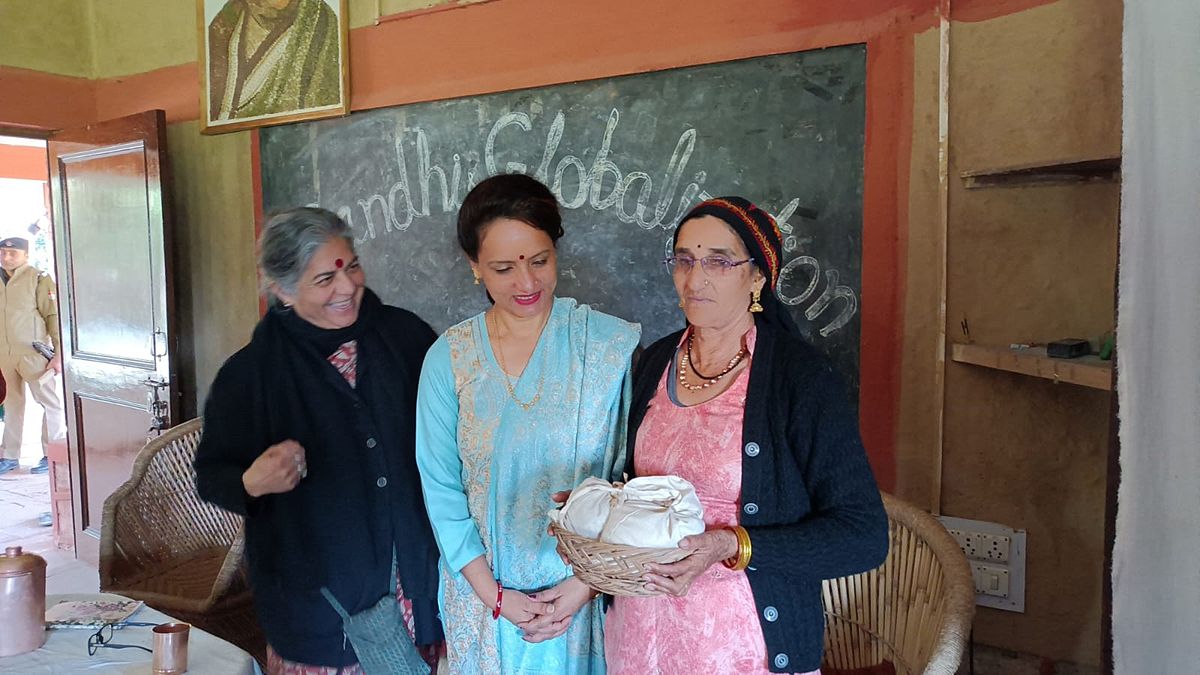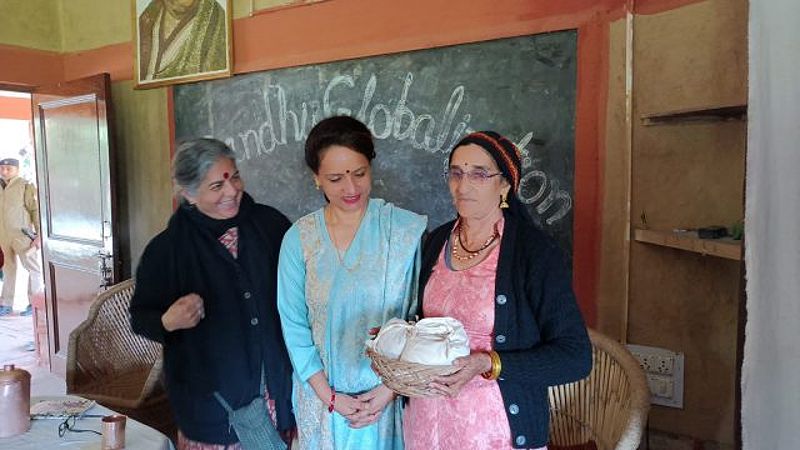Women farmers from Uttarakhand, Odisha, and West Bengal are trained in biodiversity conservation and organic farming, empowering them to educate and train other farmers in their regions.
Empowering Women Farmers: Training for Biodiversity Conservation and Organic Farming
Women farmers from Uttarakhand, Odisha, and West Bengal recently participated in a two-day “Biodiversity Conservation, Organic Farming Trainer Programme” at the Navdanya Biodiversity Farm in Ramgarh, Dehradun. The programme aimed to train women in biodiversity conservation and seed saving, empowering them to educate and train other farmers in their respective regions.

( Credit to: Garhwalpost )
During the programme, renowned experts interacted with the trained farmers, sharing their knowledge and experiences. Dr Dheeraj Singh, former Director of Rapeseed and Mustard Research Directorate, encouraged the farmers to promote the cultivation of mustard or other oilseed crops suitable for their areas. He highlighted the importance of selecting healthy seeds and implementing proper agricultural practices to achieve abundant and quality production. Mustard production has proven to be profitable for farmers and mustard oil is considered beneficial for health.

( Credit to: Garhwalpost )
Professor Dr Vir Singh from Pantnagar University shared insights on biodiversity-based organic farming and seed sovereignty. He emphasized the significance of diverse trees, plants, and crops in ensuring a happier and healthier life on Earth. The sun, as the main source of energy, plays a vital role in the growth of crops and food.
Dr Vandana Shiva, environmentalist and director of Navdanya, spoke about the training programme’s objectives and its impact on women farmers. She highlighted the detrimental effects of mono-cropping and chemical farming on the health of the Earth and human beings. To preserve the Earth’s health and biodiversity, she emphasized the importance of “poison-free farming and food.”
On the first day of the programme, the trained women introduced themselves and pledged to share their knowledge with as many farmers as possible within a year. Their goal is to promote organic farming and conserve biodiversity. The coordinators from different states, including Uttarakhand, Uttar Pradesh, Madhya Pradesh, Maharashtra, Odisha, Jharkhand, and West Bengal, were present during the programme.
Overall, the training programme at Navdanya Biodiversity Farm provided women farmers with the necessary skills and knowledge to contribute to biodiversity conservation and organic farming. By empowering women and promoting sustainable agricultural practices, the programme aims to create a healthier and more sustainable future for farming communities across India.
